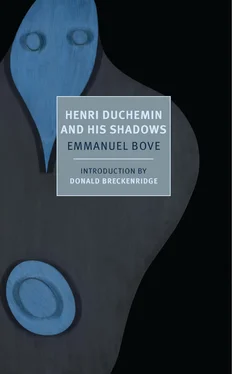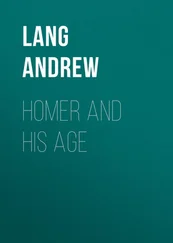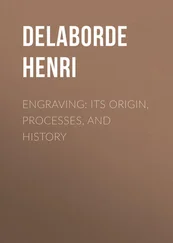In my mind, until it occurred to me that perhaps it would be my father I would first lay eyes on, it was without a doubt my mother who would be the first to forgive me.
But what is the difference? My father would kiss me, and he too would hold me in his arms, against his firmer chest, the feel of which was more difficult for me to imagine.
There were lots of animals—dogs and cats—at home the day I left. But, afraid of becoming sad, I was not thinking about them. Animals don’t live as long as people. I did not know how old they were, so perhaps they had died. In fact, no one knew their ages. They were strays adopted by my mother, who was very kind.
Again I saw the small yard where as a child I would have liked to dig a hole as deep as I was tall.
Again I saw the rabbits. They would not be the same ones, but it did not matter because even if they had not died, I would not have recognized them.
Again I saw the well next to which I used to wash because I did not want to carry water anywhere or get my bedroom floor wet, and this would anger my father because he was afraid the soapy water that was absorbed by the earth would seep back into the well.
Again I saw the artichokes, so firm when they are raw; the low branches that allowed me to climb the trees; my collection of stamps, one of which was triangular; the little stream that ran right next to the house among the nettles; a sandy path for my bare feet; the donkey—bigger now; my kite, which was store-bought and made with whitewood rather than with young twigs; my bicycle that I took care of the same way I took care of myself, disregarding the dust that covered it, but very preoccupied with the ball bearings because of the predisposition of my mind to care more about fundamentals than form.
I heard the cock’s crowing, the one at eight in the morning, more coppery because of the sunlight and the shimmering of the streams, the mallets of the washerwomen, the barking of the dogs. All these sounds became muted in space. They died slowly, mixing with the vibrations of the warm air without an unexpected echo, without reverberating on some zinc roof.
* * *
I recognized a farm, a barn. I had arrived. Because I was in the head car, I had the feeling the train was not going to stop.
The platforms were deserted. The clock, which I finally located, said 5:10. A warm, dry breeze caressed my face.
Although I had not told my family I was coming, arriving like this on a station platform where no one was waiting for me was vaguely disappointing.
The ticket windows were open. The account books, the jar of liquid glue, the telephones, the scales jammed full of bags, the announcements that were tacked but not glued out of respect for the ones underneath—all those things that are damp and sad in cities were cheerful here.
I found myself at the exit with a few other passengers. A railway worker held our tickets in his hand. It was as if we all had agreed among ourselves to turn in our tickets to the same man.
I had an inexplicable fear of coming home with a suitcase after an absence of five years, so I left mine at the baggage check.
I still had a little under half a mile to go, without a car, without a train, on foot; that is, I was sure to arrive in ten minutes, if there were no accidents or delays. My heart was pounding. I was truly happy that it was hot outside: my emotion would not show on my already flushed face.
Yet I did not dare leave the public square, where there were still people and where I could go unnoticed, to walk along the straight, open road where I could be seen from a distance.
The train left the station. So I had arrived. I had not lost any time. After a long journey like the one I had just made, I had a right to freshen up at the inn. Seeing the travelers there cheered me up.
Suddenly, I froze with fear at the thought that my father might walk in by chance and see me. The magnitude, the surprise of my return would be spoiled. I would not even dare to kiss him in front of the customers. He would bring me back to the house thinking I had not been in a hurry to see him. My mother would not welcome me in the same way. Foolishly, everything would be ruined.
I quickly downed an alcoholic drink. Flies were buzzing in the middle of the room. They were bigger than the ones in Paris. An open door gave onto a garden, onto the sky, onto my life to come.
* * *
The road that leads to my parents’ house is lined with apple trees from which now hung wisps of hay that had been left by carts returning from harvest. Winter crows, black, slow, and sad, flew above a tree in the shadowless air.
I walked very quickly. Grasshoppers, trusting their weightlessness to exempt them from any pain when they fell, were jumping from the supple support of the grass to the middle of the road where their long legs, used to stubble, were ill at ease.
A dogcart drove by on its high, iron-rimmed wheels, between which a cloud of dust was rising at the spot where the dogs are attached. It had no license plate. It was as free as the air, as the fields, as the life I was about to lead.
A man, alone in an immense field, was reaping wheat. To my right, I could see the houses in the village from which, despite the hot weather, blue wisps of smoke were rising. They were fragile in a sky where they had too much room. You could sense that the slightest puff of wind would disperse them, not immediately, only after having caused them to fold in on themselves. A milestone reminded me that somewhere someone knew the road existed.
I now dreaded the moment I had been longing for a moment ago. I was afraid of catching sight of a member of my family in the distance. I was so hot that each time I passed beneath the shade of an apple tree I did not even realize it.
A butterfly flitted in front of me. It waited for me, not only on the flowers, but on the stones, and when I drew near it flew off—so delicate—without having seen or heard me, to set itself down farther on.
The scents of wood, grasses, ponds everywhere blended above the odorless road.
On a hill, between two trees of the same size, I suddenly saw my parents’ house. The windows were open. I waited to feel some emotion, the joy I had been expecting. Nothing. This emotion, this joy, came up against a thousand thoughts, a thousand memories evoked by the host of insects, the blades of grass, the specks of earth that surrounded me, scattered me, and made it so that for a moment I did not know where I was.
I stopped. I stared hard at the house. It resembled the ones I had seen from the train. Everything was normal. Nothing about it attracted my attention more than any of the others.
Something moved in a window, something like a light-colored cloth with swirls.
I opened my mouth as if to call out. I stretched my hands toward this sign of life. It was neither an animal nor laundry hung out to dry. It was still moving on the second floor, at my parents’ bedroom window. It was my father, my mother.
A shimmering spread across my field of vision. I was suddenly aware that what I had imagined was collapsing, that the words I had prepared would not come out, that traps would be set for me, that I would contradict myself, that I was as alone as I had been in the Paris train station this morning when I left. The distance I traveled had not brought me closer. No one was thinking of me. The one who, after five years of absence, found himself a few steps from his parents was still so far away, so forgotten that everything was going on normally: a piece of cloth was moving in a window, the house was white, the windows open.
Dust was falling on me. I could tell how thick it was from the blades of grass and the branches it covered.
I took a path that skirted the house so as not to arrive by the main door. The clearings, which only partly concealed me, did not allow me to be recognized from the way I walked. The long shadows from the trees accompanied me. When I passed near a swarm of mosquitoes, I looked beneath it to the ground, without thinking.
Читать дальше












